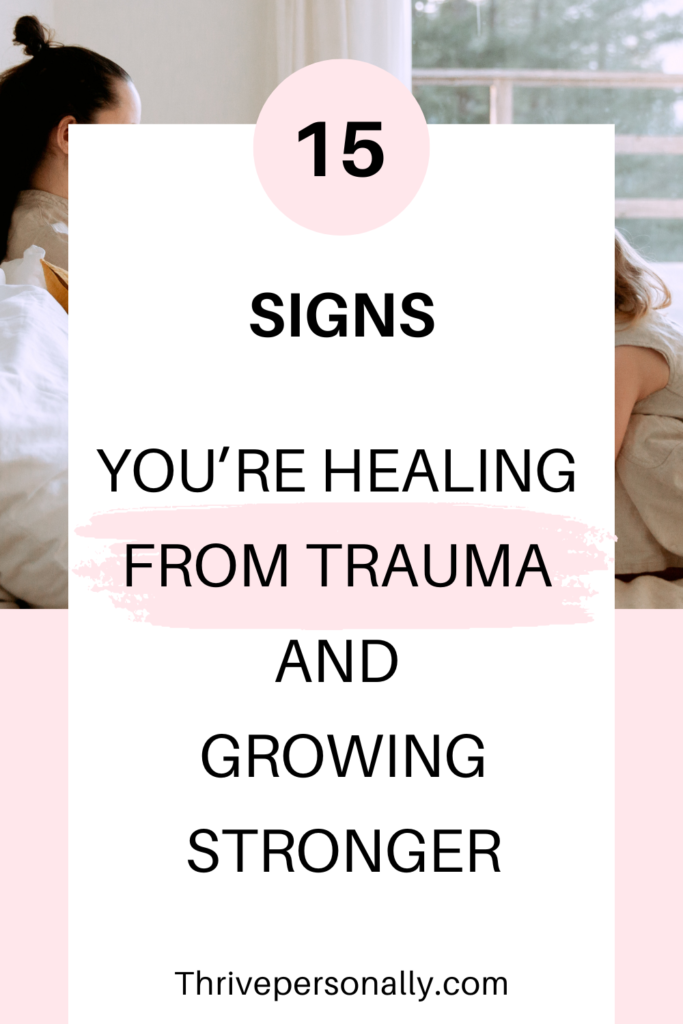Healing from trauma is an essential and transformative journey that you may embark on following distressing experiences. Trauma can arise from various events, such as accidents, abuse, or sudden loss, impacting your emotional, mental, and physical well-being.
When these events occur, they can lead to lasting effects that permeate your daily life, influencing your thoughts, feelings, and behaviors. Understanding the nature of trauma is crucial in acknowledging your experiences and initiating the healing process.
The journey of healing is often complex, marked by numerous ups and downs. It is important to recognize that every individual’s experience with trauma is unique, and your path to recovery may differ from others.
You may find yourself processing emotions such as anger, sadness, or confusion, which are natural responses to traumatic events. Embracing these feelings is vital, as they play a significant role in your healing journey and help you make sense of your experiences.
15 Signs You’re Healing from Trauma and Growing Stronger
1. You Feel Emotions More Clearly
When you’re deep in the grip of trauma, emotions can feel confusing, overwhelming, or completely shut off. You might have experienced numbness, where even joy or sadness felt distant or unreachable. As you heal, you’ll notice that your emotions are coming back into focus.
You might feel a sense of relief when you can cry over something that touches you or laugh freely without holding back. These emotions are like signals from your heart and mind, showing that you’re reconnecting with yourself. Allow yourself to embrace these feelings, even if they’re not always pleasant, because they’re part of your growth.
Read Also: How to Boost Your IQ: Simple Daily Habits to Try
2. You Can Talk About What Happened

For a long time, thinking about your trauma might have felt like reliving it. Avoiding the topic or shutting down conversations may have been your way of coping. Healing doesn’t mean you forget what happened; it means you’re able to talk about it without feeling completely overwhelmed.
You might share your story with a trusted friend, write it down in a journal, or discuss it in therapy. Each time you open up, you’re taking control of your narrative. Remember, talking about your experience doesn’t mean you’re defined by it; it means you’re learning to make sense of it and let it become just one part of your journey.
3. You Have Better Boundaries
Trauma can often blur the lines between what’s acceptable and what’s not. You might have found yourself saying yes to things you didn’t want or struggling to stand up for yourself. Healing brings clarity. You start understanding your limits and protecting your energy.
For example, you might say no to a social event if you’re feeling drained, or you’ll speak up when someone crosses a line. Setting boundaries doesn’t mean you’re being selfish; it means you value yourself enough to prioritize your needs. Healthy boundaries are a cornerstone of self-respect and emotional safety.
4. You’re Kind to Yourself
One of the hardest parts of trauma can be the inner critic that keeps replaying negative messages. Maybe you’ve blamed yourself for things that weren’t your fault or felt like you didn’t deserve kindness. Healing shifts that narrative. You start talking to yourself with compassion, the way you would comfort a friend.
This might look like giving yourself a break when you’re tired or reminding yourself that it’s okay to make mistakes. Self-kindness isn’t about ignoring areas where you want to improve; it’s about recognizing that growth comes from love, not punishment.
Read Also: 30 Gratitude Prompts to Help You See the Bright Side of Life
5. You’re More Comfortable Being Alone
For some, being alone after trauma can feel like stepping into a void where difficult thoughts and feelings surface. But as you heal, solitude becomes less intimidating. You begin to see time alone as an opportunity to recharge and connect with yourself.
This might mean picking up a hobby, meditating, or simply sitting quietly with your thoughts. Being comfortable alone doesn’t mean you don’t value relationships; it means you’ve found stability within yourself. This inner peace is a sign that you’re building a solid foundation for your well-being.
6. You’re Reconnecting with People
Trauma often leads to isolation, either because you feel misunderstood or because it’s hard to trust others. Healing opens the door to connection again. You might find yourself reaching out to friends, joining a support group, or simply enjoying casual conversations with coworkers or neighbors.
These small steps show that you’re ready to let people back into your life. Building or rebuilding relationships takes courage, but it’s a rewarding part of your journey. Trust grows slowly, so give yourself the time and space you need to feel secure with others.
7. You Sleep Better

Sleep is often one of the first things trauma disrupts. Nightmares, racing thoughts, or physical restlessness can make it hard to get the rest you need. As you heal, you’ll notice improvements in your sleep patterns. Maybe you’re falling asleep faster, staying asleep longer, or waking up feeling more refreshed.
Better sleep might come from adopting calming bedtime routines, addressing stress during the day, or simply feeling safer in your own skin. Sleep is essential for your body and mind to recover, so these changes are significant milestones in your healing process.
8. You Handle Stress Differently
Stress can feel overwhelming when you’re still carrying the weight of trauma. But healing strengthens your ability to cope. You might notice that you’re quicker to recognize when you’re feeling stressed and more proactive about managing it.
Perhaps you’ve started practicing mindfulness, using grounding techniques, or seeking support when things get tough. Over time, challenges that once felt insurmountable become more manageable. This doesn’t mean you’ll never feel stressed again, but you’ll approach it with tools and confidence that weren’t there before.
9. You Feel Hopeful About the Future
Trauma can make the future feel dark and uncertain, as if you’re stuck in the pain forever. Healing brings back a sense of hope. You start to believe that good things are possible and that you’re capable of achieving them.
This might mean setting small goals, dreaming about new experiences, or simply feeling excited about what’s to come. Hope is like a light guiding you forward, reminding you that life can be fulfilling and joyful again. Even on hard days, holding onto that hope is a sign of your resilience.
10. You Recognize Your Strengths
Surviving trauma is a testament to your strength, even if it doesn’t always feel that way. Healing helps you see the qualities that carried you through—whether it’s determination, creativity, empathy, or adaptability. These strengths aren’t just survival tools; they’re part of who you are.
Acknowledging your resilience doesn’t mean dismissing the pain you’ve endured; it means honoring your ability to persevere. Recognizing your strengths allows you to face new challenges with confidence and pride in how far you’ve come.
11. You’re Comfortable Asking for Help
Asking for help can feel vulnerable, especially if you’ve been let down in the past. But healing teaches you that seeking support isn’t a weakness; it’s a sign of strength. Whether it’s talking to a therapist, confiding in a friend, or joining a community, reaching out shows that you’re committed to your growth.
Accepting help also allows others to show their care and reminds you that you don’t have to navigate this journey alone. Every time you ask for support, you’re reinforcing your belief that you’re worth it.
12. You’ve Let Go of Blame
Trauma often comes with a heavy burden of blame—toward yourself, others, or the situation. Healing means releasing that blame. This doesn’t mean condoning harmful actions or forgetting what happened; it means freeing yourself from the cycle of anger and guilt.
Forgiveness, when it feels right, can be part of this process, but it’s ultimately about finding peace within yourself. Letting go of blame allows you to move forward without being tethered to the past. It’s an act of self-liberation that creates space for healing and growth.
13. You Take Care of Your Body
Trauma can make it hard to care for your physical health. Maybe you’ve struggled with eating well, exercising, or even basic self-care. Healing involves reconnecting with your body and treating it with kindness. This might mean going for a walk, drinking more water, or simply listening to your body’s signals.
Taking care of your physical health is a way of saying, “I matter.” It’s not about striving for perfection but about building a relationship with your body based on respect and care.
14. You’re Finding Joy in Small Things
In the aftermath of trauma, it can feel like joy is out of reach. Healing brings moments of happiness back into your life, often in simple ways. You might smile at a beautiful sunset, enjoy the taste of your favorite food, or feel warmth from a kind gesture.
These moments of joy don’t erase the pain, but they show that life is becoming more balanced. Finding joy in small things is a reminder that beauty and goodness still exist, even amidst challenges. These moments are worth cherishing as signs of your progress.
15. You Believe in Your Ability to Heal
The most important sign of healing is the belief that you can continue to grow and recover. Healing isn’t a straight path; there will be setbacks and difficult days. But each time you pick yourself up and keep going, you’re proving your strength.
Believing in your ability to heal means trusting yourself to navigate the journey ahead. It’s a powerful affirmation that no matter what you’ve been through, you have the resilience and determination to create a brighter future.
What to Do if You Don’t Recognize These Signs

It can be disheartening if you find yourself struggling to recognize the signs that indicate you are healing from trauma. Understanding that healing is a highly individual journey is essential. Here, I will guide you through actionable steps you can take if you’re feeling uncertain about your progress. Remember, it’s perfectly okay to acknowledge your feelings and seek support.
First, consider reaching out for professional guidance. A trained therapist or counselor can help you explore your experiences and feelings in a safe environment. They can offer tailored advice and teach you coping strategies that align with your unique situation. By engaging with a professional, you create an opportunity to develop a better understanding of your emotional landscape and recognize any subtle signs of healing that you might have overlooked.
Additionally, you might benefit from exploring various healing methods. Different approaches resonate with different individuals; what works for one person may not work for another.
Techniques such as mindfulness, meditation, art therapy, or journaling might help you uncover aspects of your healing journey that you hadn’t recognized before. Engaging in self-care practices is also vital. Ensure you invest time in activities that promote relaxation and well-being, as they can aid in your emotional recovery.
Moreover, connecting with support groups can be immensely beneficial. Sharing your experiences with others who have faced similar struggles can foster understanding and provide a sense of community. These shared stories may help you identify healing signs you hadn’t previously seen.
Conclusion: Celebrating Your Journey
When you celebrate your accomplishments, you validate your efforts and reinforce positive behavior. Recognizing the signs that indicate you are healing can greatly enhance your self-awareness and bolster your resilience.
For instance, you may notice changes in your relationships, improvements in your mood, or a newfound ability to cope with stress. These indicators, although they might appear insignificant at first glance, collectively represent a monumental shift toward a healthier you.
It is essential to give yourself permission to feel proud of the progress you have made. Engaging in self-celebration can take various forms, including journaling, sharing your story with supportive friends, or treating yourself to an enjoyable activity.
Each celebration, no matter the scale, contributes to a positive feedback loop that reinforces your healing process. Do not hesitate to acknowledge your journey; after all, you are reclaiming your life and moving forward in a way that aligns with your true self.
In conclusion, always remember that healing is an ongoing process, and each step you take is worthy of celebration. By honoring the milestones you achieve, you further strengthen your capacity for resilience and personal growth, ultimately enhancing your well-being. Embrace your journey, celebrate your victories, and continue to evolve into the person you aspire to be.
Save the pin for later



